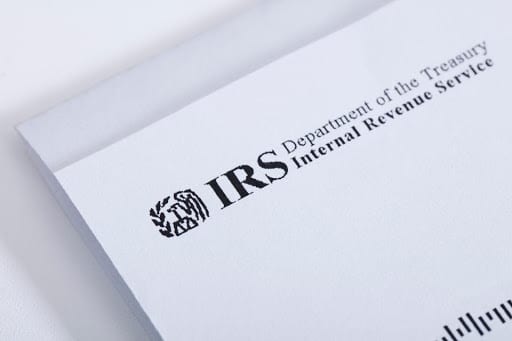What Should You Do When You Receive a Tax Notice?

Every year, small business owners are faced with the stressful task of reporting income to the IRS and filing a tax return. There’s no way around it, and it must be done each year by April 15th — or July 15th in 2020’s case.
Failing to do so will require a tax notice from the IRS — a small business owner’s worst nightmare. It will generally come when you least expect it, but it will always come if you don’t follow proper tax protocol.
As scary as it might be to receive a tax notice from the IRS, you should never panic if put in this position. Sometimes it’s a small mistake that needs to be fixed on your end, while other times, it’s a big mistake that needs to be dealt with.
Knowing how to handle yourself in these situations can help you incur minimal damage to your business.
Why Are Tax Notices Sent?
Before we discuss what should be done when a business receives a tax notice, it’s essential to understand why the tax notice is being sent. Of course, the IRS will detail everything in the letter they send, but let’s go over some of the more prominent reasons a tax notice is sent:
- There was an error on your small business tax return — either mathematical, typo, or something was missed while filing
- You failed to report 100% of your income for that year, and they need to figure out why
- The IRS is interested in performing a tax audit on your small business due to faulty claims, misleading information, etc.
- Your business failed to file your tax return by the specified date
- Your business failed to make a tax payment on-time
Don’t worry; it’s not the end of the world if you’re facing one of these issues. Like any other situation, there’s a professional way to handle it. As long as you’ve practiced good business, remain honest, and fix your mistakes, you’ll be fine.
Steps You Should Take
Now that the reasoning behind the tax notice is a little clearer let’s go over some of the steps you need to take when you receive a tax notice from the IRS.
- Confirm the tax notice is real.
Believe it or not, pretending to be the IRS is one of the more popular scams in the United States. Luckily, you can easily spot a fake tax notice from a real one. First off, the IRS only sends letters — anything outside of that (phone, email, face-to-face) isn’t real.
In addition to that, they will need all checks paid to the US Treasury, not the IRS — this is another common mistake made by scammers.
- Respond immediately, even if you need more time.
Don’t hold off in responding to the tax notice, especially if you want to promptly resolve your small business tax return issues. The moment you receive the notice, you should speak with a professional, so you have someone with experience guiding you.
- Ensure all the required documents are filled out completely.
You’ll have several things to fill out — don’t skip any of this! Double-check your work and make sure everything is filled out with the right information. This is very important and will often be the reason you’re in this mess, to begin with.
If you’ve recently received a tax notice from the IRS related to your small business tax return, contact me today. I can help explain the situation in layman’s terms and provide a real-time solution for your small business.
References
Murray, Jean. “My Business Received an IRS Notice-What Should I Do?” The Balance Small Business, The Balance Small Business, 2 Jan. 2020, www.thebalancesmb.com/what-to-do-with-an-irs-notice-4771901.
Murray, Jean. “Before Filing Your Business Tax Return: Check for These Errors.” The Balance Small Business, The Balance Small Business, 27 Feb. 2020, www.thebalancesmb.com/what-are-the-most-common-business-tax-return-errors-397693.
